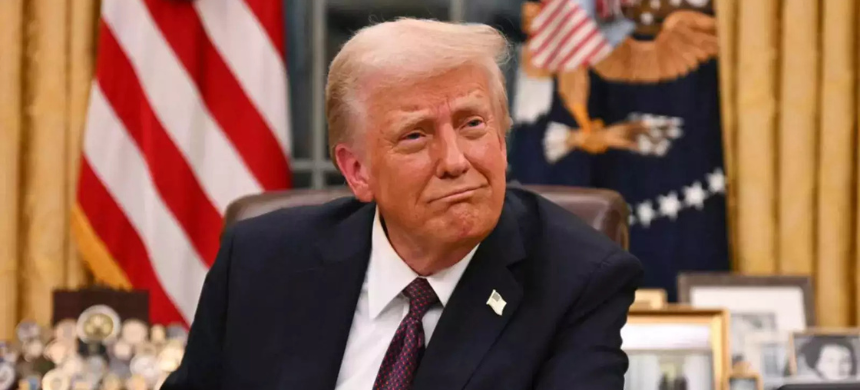A U.S. trade court on Wednesday blocked former President Donald Trump’s broad tariff orders, ruling that his administration overstepped its legal authority by imposing wide-ranging import duties without Congress’s approval.
The three-judge panel of the Court of International Trade determined that Trump’s reliance on the International Emergency Economic Powers Act (IEEPA) to justify the sweeping tariffs was “impermissible” under federal law. The court issued a permanent injunction against the tariffs, emphasizing that the Constitution grants Congress exclusive power to regulate foreign commerce—power that cannot be overridden by presidential emergency powers.
The judges clarified that their ruling did not comment on the effectiveness of tariffs as a policy tool but focused strictly on legal limits. They ordered the administration to revise its tariff orders within 10 days. The government promptly filed an appeal, questioning the court’s jurisdiction.
This ruling invalidates all tariff orders made under IEEPA since January but does not affect tariffs on steel, aluminum, and automobiles imposed under other legal frameworks.
The Court of International Trade, based in Manhattan and handling customs-related cases, acknowledged that plaintiffs—including small businesses and a coalition of 12 states—proved the tariffs directly harmed their economic interests. The case combined two lawsuits: one from the Liberty Justice Center representing five small importers, and another from several states led by Oregon Attorney General Dan Rayfield.
Rayfield called the tariffs “unlawful, reckless and economically devastating,” stressing the importance of adherence to legal processes rather than presidential discretion. Plaintiffs, ranging from a New York wine importer to a Virginia educational kit manufacturer, described the tariffs as severely disruptive by raising costs and complicating supply chains.
The court noted the tariffs’ illegality applies broadly, stating, “if the challenged Tariff Orders are unlawful as to Plaintiffs they are unlawful as to all.”
Financial markets reacted positively to the decision, with the US dollar strengthening and stock markets rising in Asia and on Wall Street. Analysts noted the ruling brings clarity to unsettled global trade relations caused by Trump’s aggressive tariff strategy.
Read More: https://theneutral.pk/grok-chatbot-set-to-launch-on-telegram-heres-how-to-access-it/
A White House spokesperson defended the tariffs, citing the US trade deficit as a “national emergency” that had harmed American communities and industry. The administration maintained that addressing the emergency was beyond the scope of judicial review.
Trump had justified tariffs ranging from 10% to over 50% on various imports by pointing to the $1.2 trillion US trade deficit, aiming to boost domestic manufacturing and job creation. However, businesses and analysts highlighted the tariffs increased operational costs, disrupted supply chains, and triggered retaliatory actions from trading partners. The tariffs also complicated trade negotiations with the European Union and China.
Although some tariffs were adjusted in May 2025 during trade talks, the legal basis for their broad application has now been struck down by the court.
The Trump administration is expected to appeal the decision to the US Court of Appeals for the Federal Circuit in Washington, D.C., with experts suggesting the case could reach the Supreme Court due to its constitutional significance.
During the trial, the Department of Justice argued the lawsuits should be dismissed, noting that plaintiffs had not yet paid the tariffs and that only Congress could contest a national emergency declaration.
Notably, Trump’s administration was the first in US history to use IEEPA to impose tariffs instead of its traditional applications, such as freezing assets or sanctioning foreign actors.
At least five other lawsuits challenging the tariffs remain active in US courts.











